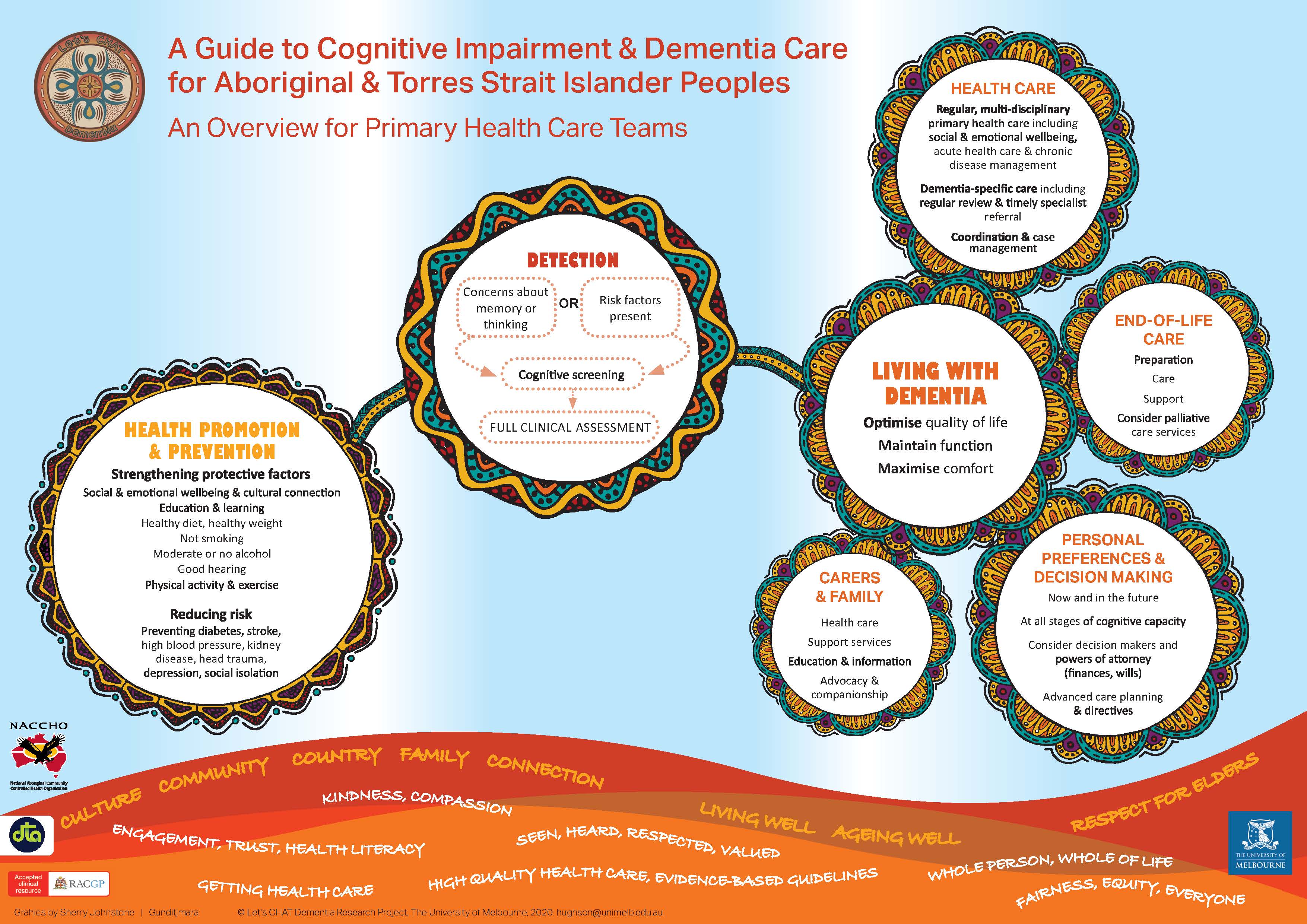New ‘best practice guide’ for Indigenous dementia caregivers
Twelve Aboriginal Community-Controlled Health Services have partnered with the University of Melbourne and other collaborators to produce a ‘best practice model’ for primary care health professionals working with Aboriginal and Torres Strait Islander older people at risk of or living with dementia.

The Best-practice guide to cognitive impairment and dementia care for Aboriginal and Torres Strait Islander people attending primary care, combines clinical and cultural recommendations on health promotion and prevention, detection and management of cognitive impairment and dementia, including recommendations about care at the end of life, and carer health and wellbeing.
The guide emphasises the need for dementia care for Aboriginal and Torres Strait Islander people to be culturally safe and trauma informed, in recognition of the impacts of colonisation and historical forced removal from family, Country and culture. It also focuses on the importance of taking a ‘life course approach’ to tackling dementia.
University of Melbourne Dr Jo Hughson, is the Project Manager of the Let’s CHAT Community Health Approaches To Dementia in Aboriginal and Torres Strait Islander Communities.
“This is the principle of ‘ageing well by living well’ - building a strong brain early in life and protecting and strengthening it as we move through life,” Dr Hughson said.
“Dementia is a growing health issue around the world with increasing prevalence and no cure as yet despite decades of research. Rates in Aboriginal and Torres Strait Islander Communities is up to five times higher than in the overall population, and the average age of onset is younger. There is increasing evidence, though, that prevention and management of vascular and other risk factors throughout life could delay progression to dementia.”
Developed in consultation with cultural and clinical experts, the guide will be a valuable resource for health professionals working with Aboriginal and Torres Strait Islander communities and give health practitioners clear pathways for providing best-practice care to older people and their families, resulting in better detection rates and more timely management.
“Our guide provides health professionals with knowledge of important clinical aspects that need to be addressed in this setting and highlights how care and communication may need to be tailored to be culturally safe and align with community understandings of health and well being,” Dr Hughson said.
“It also brings attention to the importance of looking after the health and well being of carers of people with dementia. Caring for a person with dementia can be extremely demanding and challenging, and carers are likely to have their own health care needs, as well as multiple responsibilities within their families and communities.”
There have also been myths about dementia in Aboriginal and Torres Strait communities and collaborators hope the guide will dispel these misconceptions.
“For example, when we first started reseach in this area many people believed that Aboriginal and Torres Strait Islander people do not live long enough to develop dementia, or that alcohol-related dementia was common. The research has shown that neither of these myths is true,” Dr Hughson said.
The 24-page guide and its accompanying clinical summary document and poster resource have the support of the national leadership body for Aboriginal and Torres Strait Islander health in Australia, the National Aboriginal Community Controlled Health Organisation (NACCHO), and have been accepted as an Approved clinical resource by the Royal Australian College of General Practitioners (RACGP).
A suite of resources based on the guide have also been created, including a video series on how to talk about memory and thinking problems and conduct a cognitive assessment (for health professionals), and some brain health promotion advertisements starring Australian actor and musician, Uncle Jack Charles, which are being rolled out nationwide.
Media enquiries: Lito Vilisoni Wilson | +61 466 867 909 | litovilisoni.wilson@unimelb.edu.au